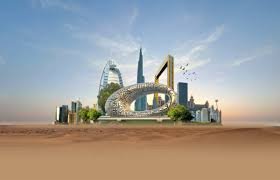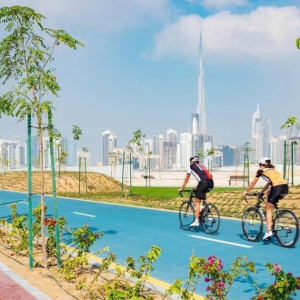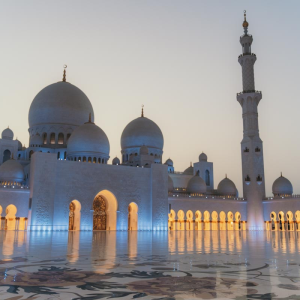For many years, the United Arab Emirates (UAE) has been known for its wealth from oil. But now, the country is making big changes to ensure its economy is not just dependent on oil. The UAE is working hard to grow other industries like technology, tourism, real estate, and finance. This shift is part of a larger plan to create a more stable and diverse economy that can thrive in the future.
Why Is the UAE Moving Away from Oil?
Oil has been a major source of income for the UAE, but the government understands that relying too much on it is risky. Oil prices go up and down, and the world is slowly moving towards cleaner energy sources. To stay strong in the global market, the UAE is focusing on new industries that can bring in money and create jobs for future generations.
Key Industries Leading the Transformation
The UAE is investing in different sectors to build a balanced economy. Here are some key areas where the country is making big moves:


1. Technology and Innovation
The UAE is becoming a global leader in technology. Cities like Dubai and Abu Dhabi are creating smart cities, artificial intelligence (AI) hubs, and innovation parks. The government is also supporting startups and digital businesses to drive economic growth.
2. Tourism and Hospitality
Tourism is already a big part of the UAE’s economy, with millions of visitors coming every year to see landmarks like the Burj Khalifa and the Palm Jumeirah. The government is now working on new attractions, luxury resorts, and cultural sites to make the UAE an even bigger tourist destination. Events like Expo 2020 Dubai have also helped boost the tourism sector.

3. Real Estate and Infrastructure
The UAE is known for its impressive skyscrapers and luxury properties. The real estate sector continues to grow with new projects, including futuristic cities and high-tech business hubs. These developments attract investors from all over the world, making the UAE a hotspot for real estate investment.
4. Finance and Business
Dubai and Abu Dhabi are becoming major financial centers, competing with cities like London and New York. The UAE has set up special economic zones that make it easier for international businesses to set up operations. The country is also encouraging investments in fintech (financial technology) to modernize banking and payment systems.
Government Strategies for Economic Growth

To support these industries, the UAE government has introduced several policies and initiatives, including:
- UAE Vision 2030 – A long-term plan to diversify the economy and promote innovation.
- Golden Visa Program – Offering long-term visas to skilled professionals, entrepreneurs, and investors.
- Business-Friendly Reforms – Reducing restrictions on foreign ownership and making it easier to start businesses.
- Green Energy Initiatives – Investing in clean energy projects like solar and hydrogen power to reduce dependence on oil.
How Will These Changes Benefit People?
The UAE’s economic shift is expected to bring many benefits to both locals and foreigners. It will create more job opportunities, attract skilled workers, and offer new business prospects. Young entrepreneurs will have more support, and investors will find a stable market to grow their businesses.
Additionally, the focus on sustainability and innovation will make the UAE a better place to live. With smarter cities, advanced technology, and a stronger economy, the country aims to maintain its position as a global leader in economic development.
Conclusion
The UAE is on a mission to build a future that is not just about oil but about innovation, tourism, business, and sustainability. By making strategic investments and adopting new policies, the country is ensuring long-term economic success. As the world changes, the UAE is proving that it can adapt and thrive, setting an example for other nations looking to diversify their economies.
Also read: UAE’s Economic Growth in 2025: What’s Fueling the Boom?












